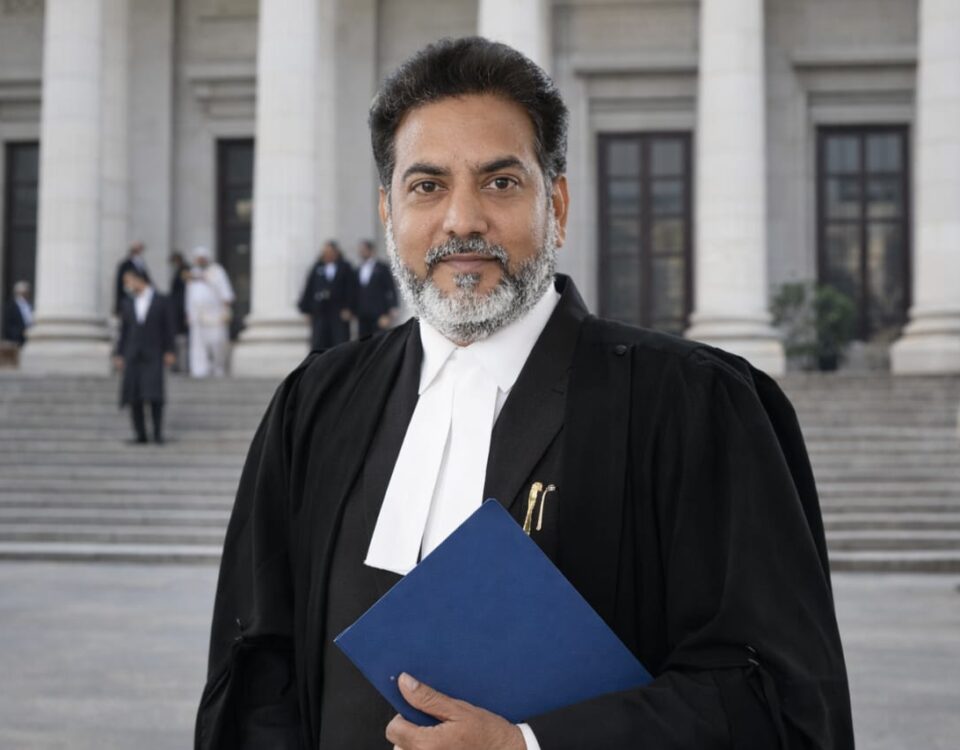- Top-rated Best Divorce Lawyer in India
- +91 9616166166
- Top Mutual Divorce Lawyer in India
Divorce Lawyer in Noida

Best Divorce Lawyer in Dehradun
July 31, 2025
Divorce Lawyer in Noida Extension
August 4, 2025Divorce Lawyer in Noida: Comprehensive Guide to Legal Separation
Divorce is one of the most emotionally draining and legally complex processes a person can go through. In India, where marriage is considered a sacred bond, separation can be even more challenging due to legal intricacies, societal expectations, and emotional stress. For residents in and around Noida, seeking the assistance of a reliable and experienced divorce lawyer in Noida is often a crucial step in navigating this difficult transition.
This comprehensive guide will walk you through everything you need to know about divorce in Noida—from the types of divorce and legal procedures to the importance of having a lawyer, client experiences, and frequently asked questions.

Understanding Divorce in India
Divorce is governed by personal laws in India, depending on the religion of the individuals involved, as well as under the Special Marriage Act for interfaith marriages or civil marriages. These laws set out specific procedures and valid grounds for divorce.
Common Grounds for Divorce:
-
Cruelty (mental or physical)
-
Adultery
-
Desertion (for more than 2 years)
-
Mental disorder
-
Conversion to another religion
-
Incurable disease
-
Renunciation of the world
-
Presumption of death
Types of Divorce in Noida
1. Mutual Consent Divorce
This is the most straightforward and amicable form of divorce, where both parties agree to the separation and the terms of alimony, custody, and property division.
Key features:
-
Both parties must have lived separately for at least one year.
-
Both parties must agree to end the marriage.
-
A minimum six-month cooling-off period (can be waived).
-
Typically finalized within 6–12 months.
2. Contested Divorce
In a contested divorce, one spouse seeks to end the marriage without the consent of the other. This usually occurs when there are disputes over child custody, alimony, domestic violence allegations, or property division.
Key features:
-
Can take several years depending on the complexity and cooperation of both parties.
-
Involves multiple hearings, evidence, and cross-examinations.
-
Often more emotionally and financially draining than mutual consent.
Role of a Divorce Lawyer in Noida
Hiring a divorce lawyer in Noida ensures that your rights are protected, paperwork is accurate, and that you receive the best possible outcome in matters like custody, support, and property division.
Services Typically Offered:
-
Legal consultation and strategy planning
-
Drafting and filing of petitions
-
Representation in family courts
-
Negotiation and mediation services
-
Child custody and visitation arrangements
-
Alimony and financial settlement planning
-
Enforcement of court orders
-
Appeals and post-divorce modifications
Benefits of Hiring a Local Lawyer:
-
Familiarity with Noida Family Court procedures
-
Regular presence in court for follow-ups
-
Faster document processing and court appearances
-
Accessibility for meetings and consultations
Divorce Process in Noida: Step-by-Step
Here’s an overview of how the divorce process typically unfolds in Noida:
Step 1: Initial Consultation
The individual consults a divorce lawyer to evaluate the grounds and plan the legal strategy.
Step 2: Filing of Petition
A divorce petition is drafted and filed at the Family Court in Noida. In mutual consent cases, both parties sign the petition; in contested cases, only one spouse files.
Step 3: Court Notice and Response
In contested cases, the other spouse receives a court notice and must submit a response.
Step 4: Evidence and Mediation
The court may encourage mediation. If unsuccessful, both parties present evidence and witnesses.
Step 5: Final Arguments and Judgment
Once the court is satisfied, it issues the divorce decree—granting legal separation along with decisions on custody, alimony, and property.
Step 6: Appeal (if required)
Either party can file an appeal in a higher court if they are not satisfied with the judgment.
Important Considerations in Divorce Cases
1. Child Custody
Courts prioritize the child’s welfare above all else. In Noida, joint custody is becoming increasingly common, although traditionally mothers were favored for younger children.
2. Alimony and Maintenance
Alimony depends on multiple factors including:
-
Earning capacity of both spouses
-
Standard of living
-
Duration of marriage
-
Financial needs and responsibilities
3. Division of Property
Courts strive for equitable distribution. However, property solely in the name of one spouse may not be automatically divided unless contributed to jointly.
4. False Allegations
At times, one party may bring false charges (e.g., domestic violence or dowry demands) as a tactic. A seasoned divorce lawyer helps defend against such tactics.
Common Challenges in Divorce Proceedings
-
Emotional trauma and stress
-
Delay due to overburdened courts
-
Non-cooperation by either party
-
Pressure from family or society
-
Child custody disputes
-
Difficulty in proving allegations
A competent lawyer helps reduce stress by offering legal clarity, timely updates, and courtroom preparedness.
Legal Aid and Women’s Rights in Divorce
Women have special protections under Indian law, such as:
-
Right to maintenance (Sec 125 CrPC)
-
Right to residence in the matrimonial home
-
Protection from domestic violence (DV Act, 2005)
-
Stridhan recovery
-
Custody of children under age 5 often goes to the mother
Legal aid is also available for women from economically weaker sections in Noida, through the District Legal Services Authority.
How to Choose the Right Divorce Lawyer in Noida
1. Specialization
Ensure the lawyer specializes in family and matrimonial law with a track record of handling similar cases.
2. Communication
You should feel comfortable discussing personal details. The lawyer must explain legal terms and updates in layman’s language.
3. Fee Transparency
Request a clear breakdown of fees—filing charges, court fees, consultation charges, and hearing fees.
4. Availability
Ensure the lawyer has time to dedicate to your case. Frequent rescheduling and adjournments can delay outcomes.
5. Reputation
Online reviews, word of mouth, and client experiences can give insight into the lawyer’s ethics and success rate.
Testimonials from Clients in Noida
“My divorce was emotionally exhausting, but my legal process wasn’t. The lawyer guided me every step of the way, from filing to settlement. I received fair alimony, and custody of my daughter was granted to me.”
— Aarti R., Sector 76, Noida
“Our mutual divorce was handled with sensitivity and speed. There were no unnecessary court visits or drama. Everything was settled in six months.”
— Vikram P., Sector 137, Noida
“My spouse made false allegations of cruelty. I was devastated, but the court dismissed all charges due to the strong defense strategy. I was also granted visitation rights to see my son.”
— Rahul S., Noida Extension
“We tried to reconcile but couldn’t. The mediation process helped us divide our assets without litigation. The legal guidance I received was clear, unbiased, and practical.”
— Neha K., Sector 50, Noida
Frequently Asked Questions (FAQs)
1. How long does a divorce take in Noida?
-
Mutual Consent Divorce: 6 to 12 months
-
Contested Divorce: 2 to 5 years or longer
2. What documents are required for filing divorce?
-
Marriage certificate
-
Address proof of both parties
-
Passport-sized photographs
-
Proof of separation (if any)
-
Income tax statements
-
Evidence supporting grounds for divorce (in contested cases)
3. Is it mandatory to appear in person for divorce proceedings?
Yes, physical presence is generally required for hearings. However, in exceptional cases (e.g., parties abroad), power of attorney and video conferencing may be permitted.
4. Can the six-month waiting period be waived?
Yes, in mutual consent cases, courts can waive the cooling-off period if reconciliation is unlikely and both parties agree.
5. What if one spouse refuses to consent to a mutual divorce?
Then the case must proceed as a contested divorce. The petitioning spouse must prove grounds like cruelty, adultery, or desertion.
6. Can working women receive alimony?
Yes, working women are eligible for alimony if their income is significantly lower than their spouse’s, or if they have dependent children.
7. Can a husband claim alimony?
Yes. If the husband is financially dependent, unemployed, or disabled, he can claim maintenance from his wife.
Final Thoughts
A divorce is not just a legal procedure—it’s a deeply personal journey that often involves emotional upheaval, financial uncertainty, and social pressure. Having an experienced divorce lawyer in Noida can help you navigate this difficult phase with legal clarity and emotional strength.
The right lawyer ensures that your rights are upheld, disputes are resolved effectively, and that you receive a fair outcome whether it’s related to custody, finances, or freedom from an unhealthy marriage.




